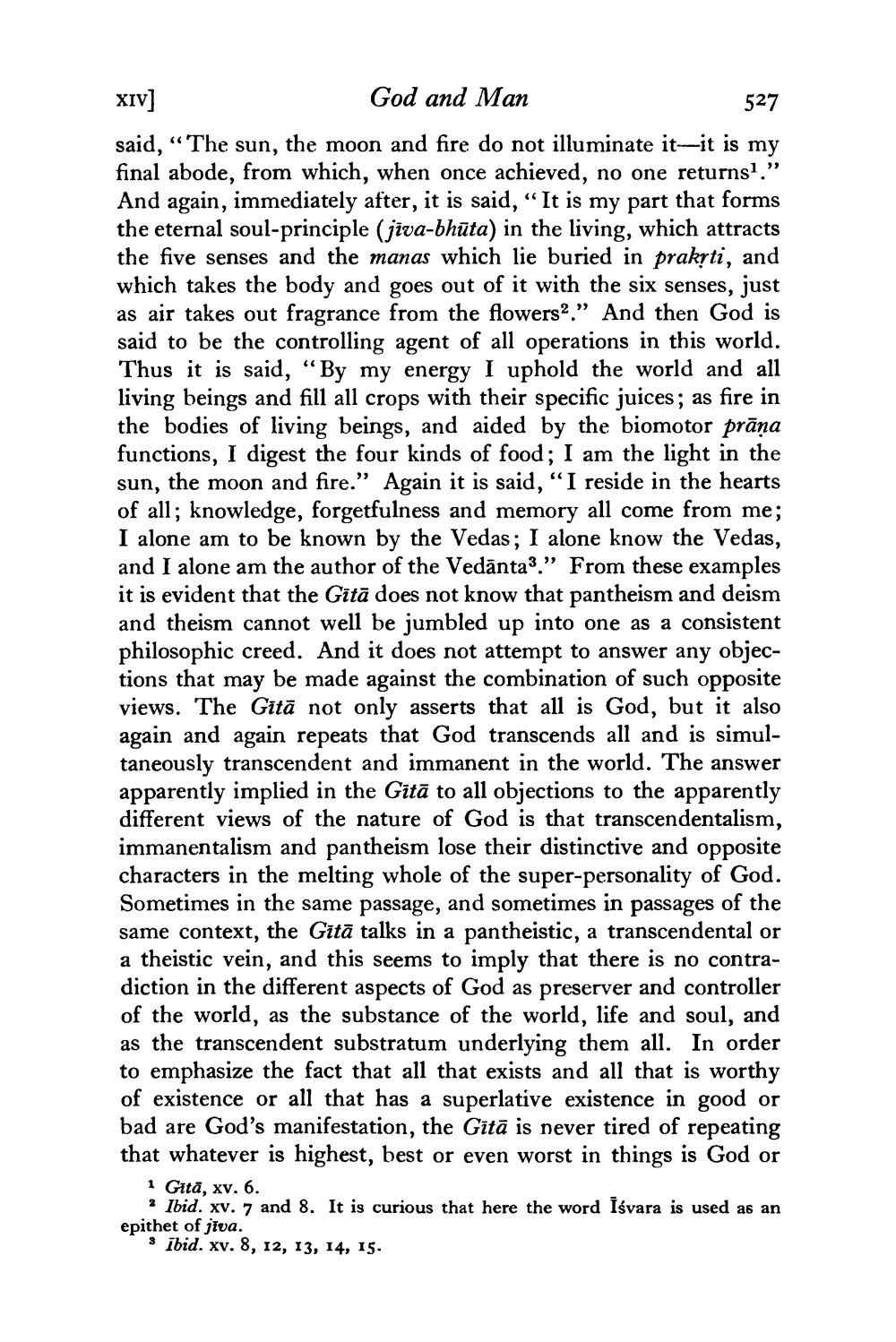________________
XIV]
God and Man
527
said, "The sun, the moon and fire do not illuminate it-it is my final abode, from which, when once achieved, no one returns1." And again, immediately after, it is said, "It is my part that forms the eternal soul-principle (jiva-bhūta) in the living, which attracts the five senses and the manas which lie buried in prakṛti, and which takes the body and goes out of it with the six senses, just as air takes out fragrance from the flowers2." And then God is said to be the controlling agent of all operations in this world. Thus it is said, "By my energy I uphold the world and all living beings and fill all crops with their specific juices; as fire in the bodies of living beings, and aided by the biomotor prāṇa functions, I digest the four kinds of food; I am the light in the sun, the moon and fire." Again it is said, "I reside in the hearts of all; knowledge, forgetfulness and memory all come from me; I alone am to be known by the Vedas; I alone know the Vedas, and I alone am the author of the Vedanta3." From these examples it is evident that the Gita does not know that pantheism and deism and theism cannot well be jumbled up into one as a consistent philosophic creed. And it does not attempt to answer any objections that may be made against the combination of such opposite views. The Gitā not only asserts that all is God, but it also again and again repeats that God transcends all and is simultaneously transcendent and immanent in the world. The answer apparently implied in the Gitā to all objections to the apparently different views of the nature of God is that transcendentalism, immanentalism and pantheism lose their distinctive and opposite characters in the melting whole of the super-personality of God. Sometimes in the same passage, and sometimes in passages of the same context, the Gitā talks in a pantheistic, a transcendental or a theistic vein, and this seems to imply that there is no contradiction in the different aspects of God as preserver and controller of the world, as the substance of the world, life and soul, and as the transcendent substratum underlying them all. In order to emphasize the fact that all that exists and all that is worthy of existence or all that has a superlative existence in good or bad are God's manifestation, the Gitā is never tired of repeating that whatever is highest, best or even worst in things is God or
1 Gitā, xv. 6.
2 Ibid. xv. 7 and 8. It is curious that here the word Iśvara is used as an epithet of jiva.
3 ibid. xv. 8, 12, 13, 14, 15.




